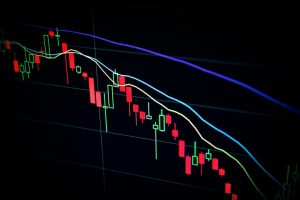Forex trading, also known as foreign exchange trading, is the process of buying and selling currencies in the global market. Forex traders are individuals who engage in this activity professionally, either on behalf of a company or for themselves. Like any other profession, forex traders earn a salary for their work, which is determined by a variety of factors.
The forex market is the largest and most liquid market in the world, with an estimated daily turnover of over $5 trillion. It is a 24-hour market, with trading taking place across different time zones. Forex traders use various strategies to make profits, including technical analysis, fundamental analysis, and algorithmic trading.
Forex trader salaries can vary widely depending on a number of factors, including experience, education, location, and the type of employer. According to Glassdoor, the average salary for a forex trader in the United States is $92,327 per year, with a range of $50,000 to $195,000. However, this figure may be higher or lower depending on the individual’s qualifications and experience.
Education is an important factor in determining a forex trader’s salary. A bachelor’s degree in finance, economics, or a related field is typically required to qualify for a job as a forex trader. However, many traders also hold advanced degrees, such as a master’s in finance or an MBA. The more education and specialized training a trader has, the higher their earning potential.
Experience is another important factor in determining a forex trader’s salary. Entry-level traders typically earn salaries on the lower end of the scale, while more experienced traders can earn significantly higher salaries. Many traders start out as assistants or trainees, working under experienced traders to learn the ropes before taking on their own accounts.
Location can also impact a forex trader’s salary. Traders in major financial centers such as New York, London, and Tokyo tend to earn higher salaries than those in smaller cities or less developed countries. This is due to the higher cost of living in these areas and the greater demand for skilled traders.
The type of employer can also impact a forex trader’s salary. Traders who work for large financial institutions such as banks or hedge funds typically earn higher salaries than those who work for smaller firms or trade independently. However, these positions may come with greater pressure and longer work hours.
In addition to their base salary, forex traders may also earn bonuses and commissions based on their performance. Successful traders who generate significant profits for their employers may be rewarded with bonuses or a share of the profits. Many traders also earn commissions on the trades they make for clients.
Forex trading can be a lucrative profession for those with the skills and expertise to succeed. However, it is important to note that trading is a high-risk activity and not all traders will be profitable. It takes a combination of education, experience, and skill to become a successful forex trader and earn a high salary.
In conclusion, a forex trader’s salary can vary widely depending on a number of factors, including education, experience, location, and type of employer. While the average salary for a forex trader in the United States is around $92,327 per year, individual salaries may be higher or lower depending on these factors. Successful traders may also earn bonuses and commissions based on their performance. However, trading is a high-risk activity and not all traders will be profitable, so it is important to approach the profession with caution and a solid understanding of the market.





